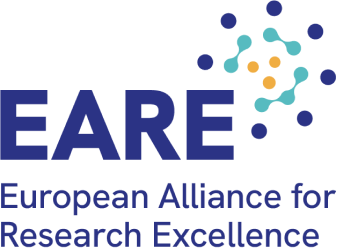
EARE signs letter for a balanced approach on AI and data mining in the UK
EARE is pleased to be a signatory of the Open Letter on Text and Data Mining (TDM) addressing issues regarding the upcoming AI legislation in the UK, which aligns with our efforts to encourage open data policies for research and innovative organisations in Europe. In view of the upcoming legislation on AI, the letter is calling on the UK to introduce a Code of Practice supportive of AI innovation while making the country a safe place to do AI.
This letter comes in the context of the stakeholder dialogue on a Code of Practice, which we consider to be the result of a U-turn by the British Government in February 2023. By establishing this stakeholder dialogue, the British Government walked away from its prior commitment to introduce a broad copyright exception for text and data mining that would not have made an artificial distinction between non-commercial and commercial uses. What worries EARE members the most, is that applied research does not differentiate between these two. Treating them differently risks simply chilling innovative knowledge transfer and public institutions working with the private sector.
EARE and the co-signatories jointly recognize the importance of a well-functioning intellectual property regime, however, stress the importance of adopting proportionate requirements that will bolster innovation in AI. Given the fact that the UK government should move forward with the AI rules, the Code of Practice should maintain the openness of data and stipulate intellectual property rules that allow text and data mining on copyrighted works, while ensuring the protection of intellectual property.
Fostering competitiveness in the UK:Promoting open data andsafeguarding Intellectual Property
In the Open Letter, EARE and the other signatories urge the UK government to foster competitiveness and innovation by safeguarding the useof text and data sources during AI system training, all while implementingbalanced intellectual property regulations. In more concrete terms, theco-signatories emphasized certain points and issues, which are as follows:
– The regulatory authorities should take into consideration the importance of maintaining access to diverse public data sets for AI analysis without specific licenses.
– As a part of the global community, the UK government should align with the international standards on copyrights, including the approaches followed by the US, Israel, South Korea, Singapore and Japan.
– The UK government should consider the wide application of AI across various sectors and reflect the AI impact not solely on the creative sector.
The Open Letter endorses Rishi Sunak’s vision for the UK as a leader in the rollout of trustworthy AIand emphasizes the role of government in facilitating the use of important datafor the development of AI systems. In line with the protection of intellectual property rights in training AI systems, we signatories urge the UK government to address in the Code of Practice thefollowing issues:
– Encourage the collaboration between AI developers and content creators to mitigate the risksof intellectual property infringement.
– Promotethe development of standardized data access agreements, data, and schemaswithin the creative industry sector.
– Call on the creative industry sector to develop standardization of data accessagreements.
– Preserve and clarify that the Code of Conduct does not undermine theoperability of s29A – copies for the text and data analysis for non-commercialresearch.
– Promote the establishment of agreements and best practices with contentproviders to promptly address erroneous suspensions of legally accessed data,requiring reinstatement within 72 hours.
The letter is available on the website of the IP Federation.


